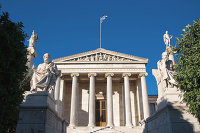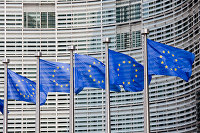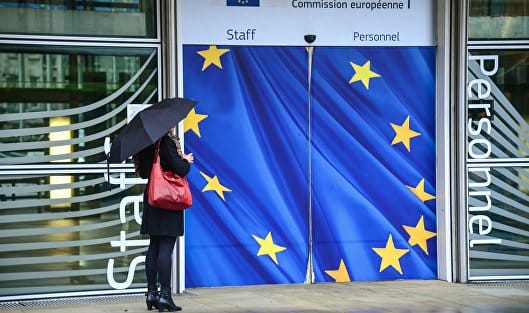MOSCOW, 31 Aug — PRIME. In the conditions of the coming autumn and rising prices for gas and electricity, European countries come up with different methods of saving, sometimes quite extraordinary and radical. How wiping with a damp cloth, brushwood and candles will help them in this is in the RIA Novosti material.
Europe feared a repeat of 2008: the first collapse is on the way
BETTER LESS, YES BETTER
Finland’s power grid operator Fingrid said shops in the country may have to alternately close for several hours during the winter to reduce electricity consumption. When it gets colder, there may be power outages for several hours.
In addition, the possibility of night work is being explored in Finland due to the high cost of daytime electricity, especially in small and medium-sized industries, which until now worked mainly during the day. We are talking about industries with a high degree of automation, where the work is performed by robots.
LEARNING IS LIGHT
In the Czech Republic, first of all, they thought about the fact that universities consume a large amount of electricity. In this regard, Czech students may be transferred to distance learning due to rising electricity prices. According to the chairman of the Council of Higher Educational Institutions of the Republic, Milan Pospisil, universities will not be able to pay electricity bills in 2023 against the backdrop of a sharp increase in tariffs without state support.
brushwood, candles and prizes
Some countries approached the situation in an original way. So, in Poland, citizens of the country were allowed to collect brushwood in the forests so as not to freeze on the cold nights of autumn and winter.

The expert believes that European LNG terminals will earn at the maximum
True, you can collect brushwood only after training and for an appropriate fee. So, citizens can only collect fallen branches in the forests, but breaking them off trees is prohibited, even if they look dry. In this case, the thickness of the branch should not be more than seven centimeters.
Switzerland came up with another no less interesting proposal. The head of the country’s Federal Commission for Electricity ElCom, Werner Luginbühl, called for stocking up on candles and firewood due to possible power outages in the country this winter.
In Lithuania, they decided to stimulate the population with finances – the country’s property bank, together with the Ministry of Finance, will hold savings competitions among enterprises, as well as residents who save the most original citizens will receive prizes. It is noted that the three state-owned enterprises that will save the most resources will receive 50,000 euros from the bank for the renovation of premises, and their teams will be invited to the awards ceremony. The competition starts on September 2 and will last until the end of the year.
IN CROWDED BUT NOT MAD
In the UK, it is assumed that due to rising electricity prices, a number of residents will simply not be able to pay their bills. In this regard, the authorities of several British cities have offered to organize public heating points for those residents who will not be able to pay their electricity bills this winter. The idea of public heating points was supported by the municipalities of Birmingham, Bristol, Dundee, Glasgow and Aberdeen. According to the initiative, public centers and libraries can become places of heating.
To prevent a situation of insolvency, in the UK it is advised to save. Thus, the Evening Standard newspaper gave the British more than 20 tips for saving electricity amid rising bills. In particular, she proposes to seal up window and door gaps, turn off household appliances from the network when not in use, switch to LED bulbs, wash dishes in a basin, take a shower rather than a bathroom, turn off the heating in non-residential rooms, and reduce the temperature in the rest. .
Residents of the English city of Market Drayton are already experiencing a serious rise in the cost of energy. Local residents, regardless of income level, are forced to reduce their consumption of gas and electricity. Many people watch TV in the dark, some use flashlights in their phones for lighting, some make tea less often, and some cook food on the street so as not to turn on the stove.
ON YOUR EXAMPLE
The Serbian Ministry of Mining and Energy recommended, first of all, budgetary organizations and institutions to save electricity. Thus, it is recommended to rationally use lighting, limit the operation of decorative lighting, use LED devices, replace window and door openings to increase energy efficiency, install solar panels, switch from electrical heating appliances to other sources of heating, and use heat pumps.

Prime Minister of Greece reproached Russia for high gas prices
According to the Serbian Ministry, this approach should lead to a 15% reduction in energy consumption compared to the same period last year.
Serbian President Aleksandar Vučić showed by example how everyone can contribute to reducing energy consumption. According to his own statement, Vučić turned off his refrigerator and most of the lights on his floor in the presidential residence in order to save electricity.
TIPS FOR THE WEIGHT OF GOLD
A number of tips on savings began to be given to residents by German politicians. Thus, the Prime Minister of the German federal state of Baden-Württemberg, Winfried Kretschmann (the Green Party), as part of saving electricity and gas, proposed heating only one room in a living room and wiping himself with a damp cloth instead of a shower.
Economics Minister Robert Habek suggested using special economical watering cans for the shower. He himself admitted that in order to save energy “significantly reduced the time of taking a shower.” Schleswig-Holstein Prime Minister Daniel Günther went further and said that due to rising electricity prices, spa visits in the coming winter should be equated “with a luxury that should be voluntarily abandoned.”
Berlin’s main supplier and seller of natural gas, GASAG, has stepped up its fitness program by offering to run up the stairs and wear two sweaters to get through the winter in an energy crisis.
GERMANY IS SAVING IN A NEW WAY
At the end of August, the German Cabinet presented a new package of energy saving measures for citizens and firms, these measures should prevent the occurrence of “emergencies” in the energy supply “this and next winter.” At the initiative of the government, residents of apartments and houses in Germany will be allowed to voluntarily lower the temperature in their living quarters, provided that there is a legally fixed “lowest temperature” at which property will not be damaged.

Between two merry pipes: who controls gas prices
This time, the owners of private pools and baths got under the distribution – they will be prohibited from “intensive heating” of water. The minimum temperature in office premises will be reduced by 1 degree – up to 19 degrees Celsius, in public institutions it is forbidden to increase the temperature above 19 degrees. The heating of general premises where people “are not staying for a long time” will be banned. Warm water for washing hands will be turned off or its temperature will be reduced to a minimum.
Other measures include a restriction on advertising lighting at certain hours, and lighting of public buildings and historical monuments will also be prohibited, “except for those that contribute to the safety of public transport and protection from other threats.” Building owners will be required to “optimize heating systems”, for which special checks will be carried out.
The short-term measures are due to come into force on 1 September and will tentatively last six months. The medium-term measures will come into force on 1 October and will last for 24 months.
GOAL ON THE DEVICE OF Cunning
Not really counting on the government, the residents themselves show ingenuity. So, a resident of the small German town of Neuenhagen near Berlin intends to save on classical heating in the face of rising utility prices due to homemade toilet paper burners. He stuffed a whole roll of toilet paper into an empty tin can, sprinkled it with ethyl alcohol, and set it on fire. The result was a kind of small makeshift stove that warmed up his room pretty quickly. And even when he put it out, the stove still kept warm for a while. To save money, the man intends to turn off the heating in all rooms, except for one, where he will spend most of his time, but he plans to use classic heating even in it minimally. At the same time, the man intends to bring the temperature to a comfortable level with the help of his burners.
In Italy, too, not without private initiative. The owners of restaurants, pizzeria bars from various Italian cities began to place payment receipts for electricity and gas on the windows and doors of their establishments, announcing a triple increase in energy tariffs for the year and demanding appropriate support measures from the government. The campaign is promoted by the Italian Federation of Public Institutions (Fipe), which is part of the national association of Italian entrepreneurs Confcommercio, as well as small regional associations
CLOSE THE DOORS
France, as the Cabinet of Ministers of the country recently stated, is in an “unprecedentedly difficult” situation with energy. The government has already taken a number of drastic measures to save energy. Thus, in order to save electricity in the country, the ban on illuminated advertising will be expanded, and shops will be forbidden to keep their doors open when the air conditioner or heating system is running. Retail outlets will have to turn off illuminated signs and air ventilation at night, reduce the brightness of lighting by 50% before the arrival of customers, and by 30% during normal hours in case of a critical level of power consumption. The government also urged citizens, despite the intense heat, not to abuse the air conditioners.

The average filling level of EU gas storage facilities has reached 80%
The government of neighboring Spain on Monday approved a plan for energy conservation and energy management in the country. According to the approved plan, air conditioners in public buildings cannot be set to temperatures below 27 degrees, and heating cannot exceed 19 degrees. Entrance doors should close automatically, and the lights in the shop windows should turn off as early as 22.00 local time.
At the end of July, Prime Minister Pedro Sanchez proposed an outlandish measure: the politician renounced the tie and encouraged other citizens to follow his example in order to save energy on air conditioning.
AIR CONDITIONER OR WORLD
In Italy, there are restrictions that so far primarily limit the use of air conditioners. Back in April, Prime Minister Mario Draghi invited his compatriots to make a choice between air conditioning and peace in Ukraine. Soon, the Council of Ministers of Italy adopted a decree, according to which the air temperature in all state and educational institutions in summer should not be cooled below 27 degrees with the help of an air conditioner, and in winter it should not exceed 19 degrees. In case of violation of these restrictions, fines ranging from 500 to 3 thousand euros are provided. In July, as Rome began to seriously consider the threat of cutting off its gas supplies from Russia, local media reported that the government was working on a new package of measures, and this time it could turn to the temperature regime for private offices and residential premises. However, it is not clear how the implementation of this order will be monitored.
RENT OLD REFRIGERATOR
The Greek government says the country’s energy security is assured, but Prime Minister Kyriakos Mitsotakis urged Greeks to “change their habits a bit” to reduce electricity losses and use air conditioners more economically. Among the measures in the energy saving plan prepared by the government are the rational use of heating and cooling systems, savings in lighting, including street lighting. All public sector employees are asked to turn off personal computers, lights and electrical devices that are not in use.
The program “Utilization – replacement of the device” has also been launched to replace old energy-intensive air conditioners and refrigerators. Applicants will receive subsidies to partially pay for the new device.
COUNTRIES OF FURNACES AND BOILERS
Hungarian Prime Minister Viktor Orban said the other day that the country is developing a program of “stoves and boilers” to replace gas heating wherever possible, in particular in schools. Orban said forestry enterprises have also been tasked with learning how to harvest more firewood. In Poland, where boilers are also widely used, Prime Minister Mateusz Morawiecki in mid-July instructed state-owned enterprises to urgently buy 4.5 million tons of coal.
















